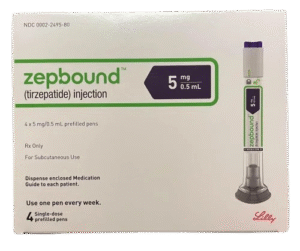
can you smoke weed on ozempic?
You’re not alone in asking, “Can you smoke weed on Ozempic?” This is one of the most common, yet least discussed, questions among new users. The internet is full of conflicting opinions, but a clear, science-based answer is hard to find.
The direct answer is that there is no known, direct pharmacological conflict that makes combining cannabis and Ozempic (semaglutide) inherently dangerous. However, that doesn’t mean it’s without potential consequences. The real concern lies in how the side effects of both substances can overlap and amplify each other, potentially impacting your comfort and the success of your treatment.
This guide will move beyond the “yes or no” to give you a realistic picture of the potential interactions, the critical role of honesty with your doctor, and strategies to manage your weight loss journey effectively.
The Reality of the Research: A Data Vacuum
First, it’s crucial to understand the foundation of this discussion: There have been no formal clinical trials studying the interaction between Ozempic and cannabis.
This means we lack hard data. All guidance is based on our understanding of how each substance works independently and anecdotal reports from users. This is why an open dialogue with your doctor is so vital.
Potential Interactions & Amplified Side Effects
While not directly dangerous, the combination can be uncomfortable. Both Ozempic and cannabis can affect your gastrointestinal system, and their effects may compound.
| Potential Effect | Ozempic’s Role | Cannabis’s Role | Combined Impact |
|---|---|---|---|
| Nausea | A very common side effect, especially when starting or titrating. | Can cause or relieve nausea, depending on the strain and individual. | Unpredictable. Could either worsen Ozempic’s nausea or provide relief. A major variable. |
| Delayed Gastric Emptying | This is Ozempic’s primary mechanism (slowing digestion to promote fullness). | THC can also slow down digestion. | The effects may be additive, potentially leading to more pronounced bloating, fullness, or constipation. |
| Low Blood Sugar (Hypoglycemia) | A known risk, especially for those with Type 2 Diabetes. | Can sometimes mask the signs of low blood sugar (like dizziness). | May increase the risk of not recognizing a hypoglycemic event, which can be dangerous. |
| Dizziness/Fatigue | A less common side effect, but possible. | A very common side effect of cannabis. | Can significantly amplify feelings of dizziness, drowsiness, or lethargy. |
The “Munchies” vs. Appetite Suppression: The Central Conflict
This is the core of the dilemma for most users. Ozempic is prescribed to suppress appetite and reduce “food noise,” while THC is famous for inducing “the munchies.”
- It’s a Tug-of-War: You are essentially taking one substance to shut off hunger and another to turn it on. Many users report that the “munchies” feel different or are somewhat blunted on Ozempic, but they are not always eliminated.
- Impact on Goals: Succumbing to high-calorie cravings can obviously hinder your weight loss progress and lead to frustration. It can also increase the risk of GI discomfort if you overeat on a stomach that is already processing food slowly.

Harm Reduction: A Practical Approach
If you and your doctor decide that use is acceptable for your situation, these strategies can help minimize negative effects:
- Strain Selection: Consider strains higher in CBD and lower in THC. CBD is not associated with stimulating appetite and may help with anxiety or inflammation without triggering the munchies.
- Timing is Everything: Avoid using cannabis in the 2-3 days following your Ozempic injection when side effects are often at their peak.
- Be Prepared: Have healthy, low-calorie, high-protein snacks readily available (e.g., Greek yogurt, vegetables and hummus, a handful of nuts) to satisfy any cravings without derailing your progress.
- Hydrate Diligently: Both substances can contribute to dry mouth and constipation. Drinking plenty of water is non-negotiable.
The Most Important Step: Having “The Talk” with Your Doctor
Many patients are hesitant to discuss cannabis use with their physician. However, for your safety and effective treatment, it is essential.
How to frame the conversation:
“Doctor, I use cannabis occasionally for [recreation / anxiety / pain management]. I want to be fully transparent because my health is my priority. Can we discuss how this might interact with my Ozempic, particularly regarding side effects and my blood sugar?”
A good doctor will appreciate your honesty and work with you to create a safe, monitored plan. They are not there to judge you, but to keep you safe.
The Final Verdict
So, can you smoke weed on Ozempic? There is no definitive prohibition, but it requires caution, self-awareness, and a commitment to open communication with your healthcare provider.
The combination is less about a direct danger and more about navigating a potential minefield of amplified side effects and conflicting signals to your appetite. Your journey is individual, and the best path is an informed one, taken in partnership with your doctor.

